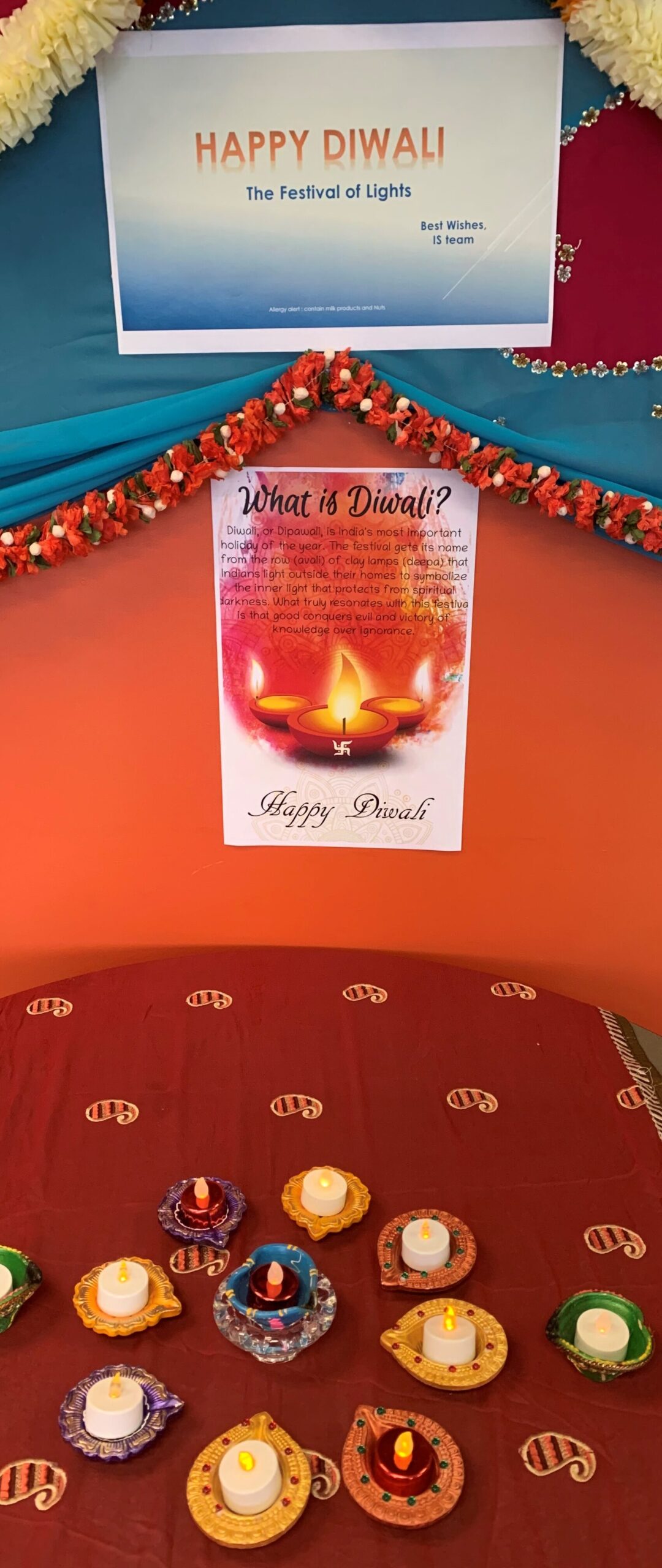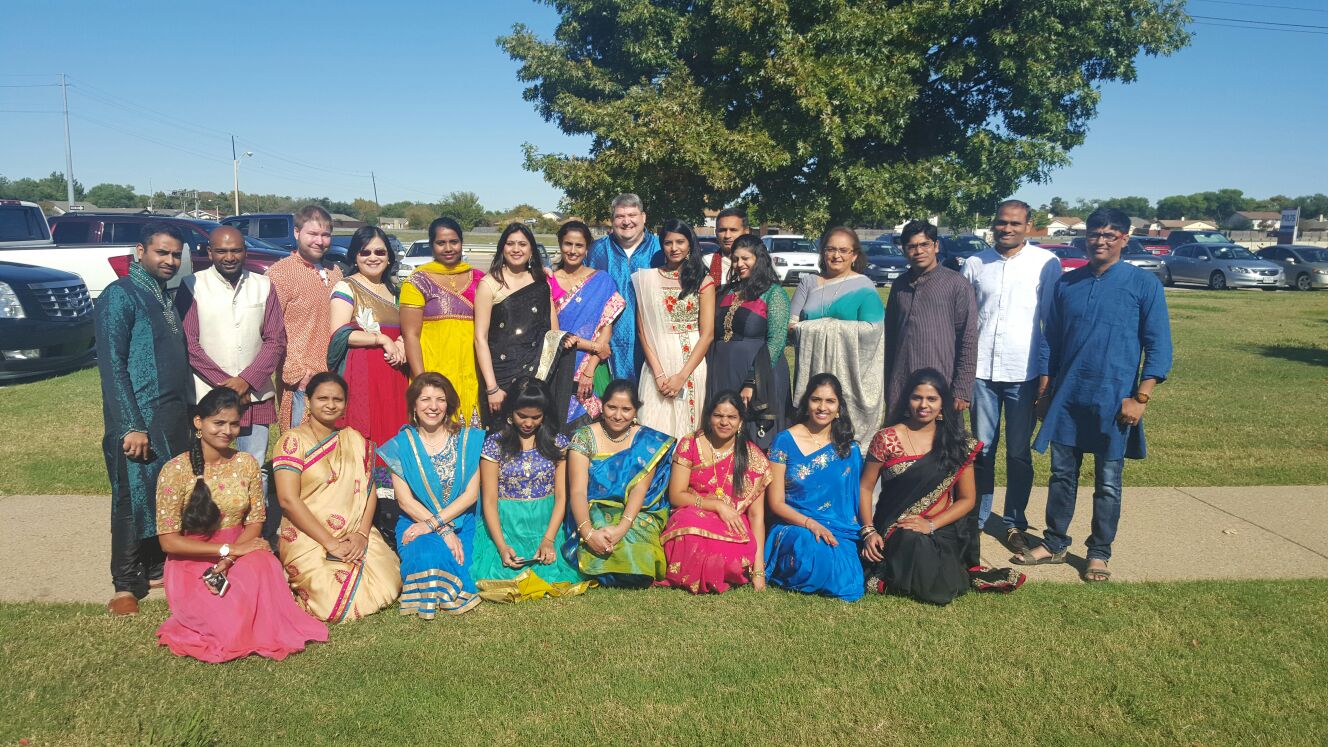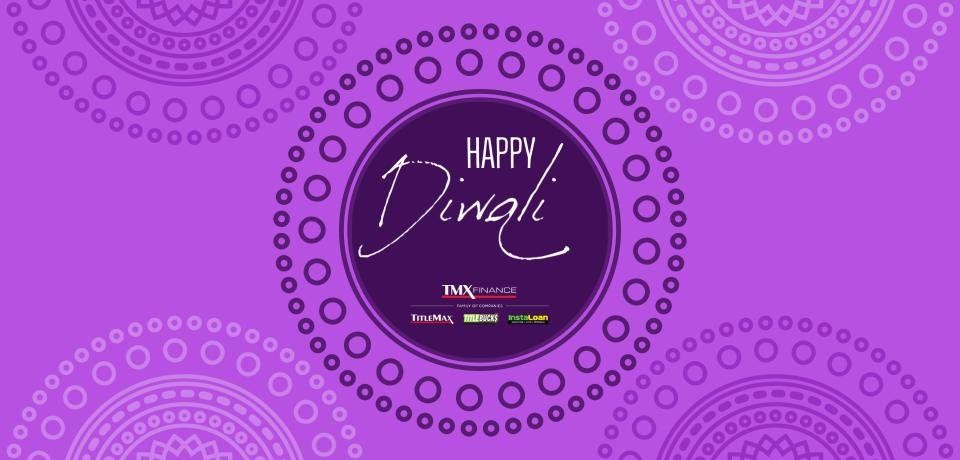Diwali is a time of grand celebration and great excitement as it is the largest festival celebrated across India. This auspicious festival celebrates “victory of light over darkness, good over evil, and knowledge over ignorance.” We feel Diwali is our Indian New Year. The festival date is determined by the Hindu calendar, so it changes every year and ranges anywhere from mid-October to November. This year, Diwali will be celebrated on November 4th.
Based on Hindu mythology, Diwali commemorates the return of Rama, Sita, and Lakshman, three exiled deities from the city of Ayodhya, after their triumph over evil. To welcome them home, communities light up their homes, streets, and offices with Diyas.1

Diyas are oil lamps usually made from clay with a cotton wick dipped in ghee or vegetable oils to light them. The significance of Diyas is reflected in the word “Diwali,” which comes from the Sanskrit word “Deepavali” meaning “row of glittering lamps.” Each and every household decorates with colorful and lovely lights on Diwali! From oil lamps to vibrant electric lights and candles, people never miss out on a chance to make their homes glow. From diwalifestival.org, this customary practice has a significant, and yet a beautiful, hidden message to it:
“The oil that is used to light the Diyas represents all the negative human traits and that includes hatred, jealousy, greed, lust, anger and many more. And, the wick represents our inner self, the soul! The lighting of Diyas symbolizes that we need our beautiful mind to clear from these negative things by enlightening our inner self. With the disappearing oil of the Diyas, these negativities from the home get disappeared.2“

Diwali always starts with a thorough cleaning and decoration of the home. During the festival, we dress up in new clothes, perform pujas (religious ceremonies), get together with family and friends to enjoy a large feast, and even light fireworks. I’ve been with the TMX Finance® Family of Companies for more than seven years and we celebrate Diwali every year in our Dallas corporate office with a lot of fun and entertainment. It is common for us to come in traditional attire to show our culture and share Indian sweets and food with our co-workers. Celebrating Diwali at work not only brings employees together, but it also helps create a more inclusive environment across all departments, boosts the morale of employees, promotes employee engagement, and induces team spirit and joy.

Diwali is also a time for prayer and reflection. Many Hindus also associate the Diwali festival with Lakshmi, the goddess of wealth and prosperity, and wife of Vishnu. According to ancient scripts, the start of the 5-day festival is stated in some popular contemporary sources as the day Goddess Lakshmi was born from Samudra manthan, the churning of the cosmic ocean of milk by the Devas (gods) and the Asuras (demons), while the night of Diwali is when Lakshmi chose and wed Vishnu. For this, many people visit temples and pray to Lakshmi.
If you ever want to visit India, visiting during Diwali is a perfect time to! You can have a delightful experience visiting different parts of the country during this special celebration and see our culture front and center. India has rightfully been named “the country of festivals” and if you want to see the zeal of festivity, Diwali is the perfect time to visit!
May this festival of lights bring you peace, prosperity, success, health, and great happiness!
Happy Diwali!
- 1. Diwali: The Festival of Light. Ria Money Transfer. October 16, 2019. https://blog.riamoneytransfer.com/en/what-is-diwali/
- 2. What is the Significance of Lighting Diyas on the day Diwali? October 17, 2017. https://www.diwalifestival.org/significance-of-lighting-diyas-on-the-day-diwali.html
